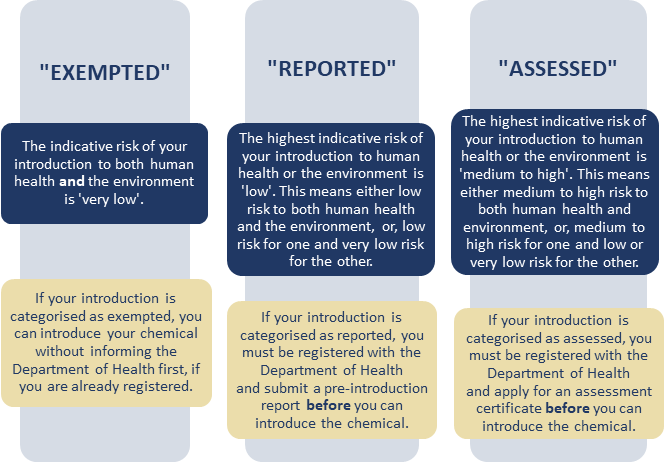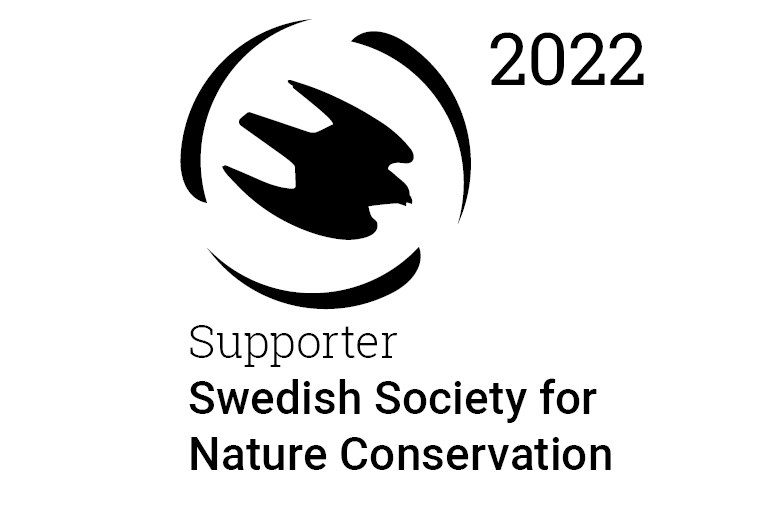Australia Reach Regulation for Various Sectors
The main obligation is on the Australian Manufacturers and importers.
Registration of Industrial chemical introducers: Under AICIS, introducers of industrial chemicals shall register their businesses before the introduction of industrial chemicals. Introduction includes both manufacture and import of chemicals in Australia. Introducers must register with the Register of Industrial Chemical Introducers for a registration year before introducing an industrial chemical during that year. Name and address of introducer will appear in the Register. Per year registration charges are application for this registration. If the introducer introduces a chemical without registration then penalties apply.
Australia replced the existing chemical regulation NICNAS to a new scheme Australian Industrial Chemicals Introduction Scheme - AICIS from 1st July 2020.
AICIS regulates chemicals with an industrial use and requires introducers of industrial chemicals to register their businesses before introduction. Introductions include both manufacture and import.
This regulation is implemented for the protection of human health and the environment through restriction, regulation, assessment, evaluation and by managing risks arising due to introduction hence ensures the safe use of the industrial chemical. Purpose of AICIS is to maintain a Register of Industrial Chemical Introducers.
Scope
This Scheme only registers industrial chemicals which used in inks, plastics, adhesives, paints, glues, solvents, cosmetics, soaps and many other products. This act does not apply to chemicals which are used in agricultural and veterinary or therapeutic purposes, or in food or feed. It only promotes safe use of industrial chemicals by providing information and recommendations to other regulators.
A manufacturer or importer (introducer) of industrial chemicals or products that release industrial chemicals — into Australia for commercial purposes must register their business if not alread registered with previous regulation NICNAS. This business registration shall be complete within given registration year before import or manufacture (introduce) of an industrial chemical. Registration year is 1 September to 31 August.
List of registered businesses will be published on the website of Australian Governement and will include the name and address of introducers.
Penalties apply if a person introduces an industrial chemical without being registered.
It is important for Non-Australian introducers to register their business and meet compliance & reporting requirements for uninterrupted exports to Australia. Australian Registered Business Number (ARBN) is mandatory for the same. Non-Australian introducers can also appoint an Australian agent for compliance requirements if they are unable to obtain Australian Registered Business Number (ARBN).
Anyone who is registered under AICIS to introduce industrial chemicals or products containing industrial chemicals (for example, cosmetics, paints and plastics) must submit an annual declaration. This applies to all of your chemical introductions, regardless of the category, amount or number of chemicals.
Applicants can submit their annual declaration from 1 August. The due date to submit it is 30 November after the end of each registration year.
Persistent Organic Pollutants (POPs), also referred to as “emerging contaminants”, include a range of chemical substances from diverse applications, ranging from medicines, personal care, household cleaning products, lawn care, agricultural products, among others.
The toxicity of POPs has been long investigated, and researchers found that these chemicals may have long-range mobility and long-lasting duration, leading to environmental contamination and pollution. POPs are often classified as Substance of Very High Concern (SVHC) with hormone disruption consequences, bioaccumulation and biomagnification through the food chain. The presence of POPs in the environment and in human health can lead to several complications, from mild effects to more serious consequences, for example, reproductive disruptions and immunological disorders.
Since POPs are not easily broken down, a characteristic that guarantees its continuation in the environment, the contaminant consequences are still being investigated. In other words, the emerging contaminants are mainly not from new pollutants that recently entered the environment. Instead, there is a good understanding of contaminants, but the consequences to their exposure are still being discovered.
Countries have created a set of rules and regulations to regulate, control, and mitigate POPs use and its effects on the environment and on human health. The essence of these legislations is to eliminate the production, trading, and use of such chemicals, including storage and waste management.
International effort in addressing POPs starts in late 1990s. The initial protocol to address POPs was implemented in 1998, signing 16 chemicals to phase out according to previously established risk criteria. The Aarhus Protocol also impose parties to reduce their emissions below 1990 levels.
The Stockholm Convention is an international conference specifically for POPs proposed in May 2001 in Sweden (complementing the Aarhus Protocol), entering into force in 2004. Among the objectives, the Stockholm Convention aims to:
- Prohibit, eliminate, and restrict several POPs in the production, use, import, and export.
- Ensure that waste contained POPs are managed safely and in an environmentally sound manner.
- Promote tools for information exchange, public access, awareness and education, research, development and monitoring, reporting, and implementation of plans to fight POPs pollution.
The Stockholm Convention is considered the main international instrument to address POPs. Most countries adhere to the Stockholm Convention.
Australia adopted the Stockholm Convention in 2004, imposing on 12 original POPs trading control on import, manufacture, use, and export throughout the territory. The Department of Agriculture, Water and the Environment (DAWE) supervises the application of the convention in such chemicals. Also, the Department ensures that POPs added to the convention on later amendments are recognized in Australia. However, Australia does not automatically adopt new amendment to the Stockholm Convention. It is necessary that the internal administration proposes the modifications though a legal text. Currently, the list of POPs ratified by the Australian government are:
- Aldrin
- Chlordane
- Dieldrin
- Endrin
- Heptachlor
- Hexachlorobenzene (HCB)
- Mirex
- Toxaphene
- Polychlorinated biphenyls (PCB)
- DDT
- Dioxins
- Furans
Further, POPs provisions depend on the chemical category, i.e., if it is a pesticide or industrial chemical. It is also to be noted that chemicals may present additional compliance/control measures depending on the local state and territory government in which the chemical is intended to be present on the market.
In addition, the Australia government is creating several efforts to enforce and comply with the Stockholm Convention’s mandate. This includes several guidelines and national plans for chemicals, which highlights:
- The Guidelines for Disposal of waste containing POPs
- The Organochlorine Pesticide Management Plan
- The National Action Plan for Dioxins
- The Polychlorinated Biphenyls Management Plan
- The Hexachlorobenzene Waste Management Plan
- The Industrial Chemicals Environmental Management Standard
In the near future, all chemicals will be submitted to the administration of the Industrial Chemicals Environmental Management Standard.



